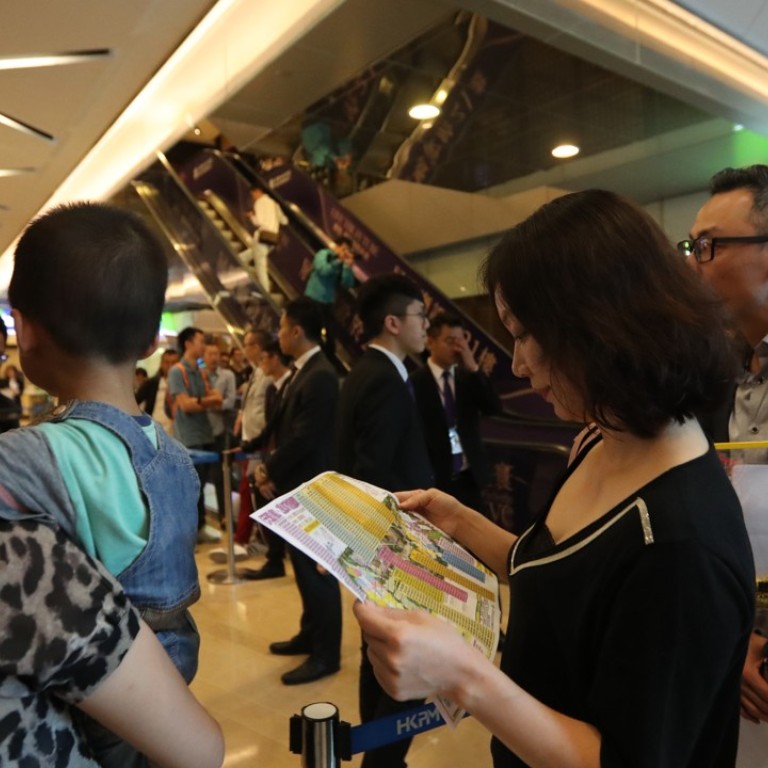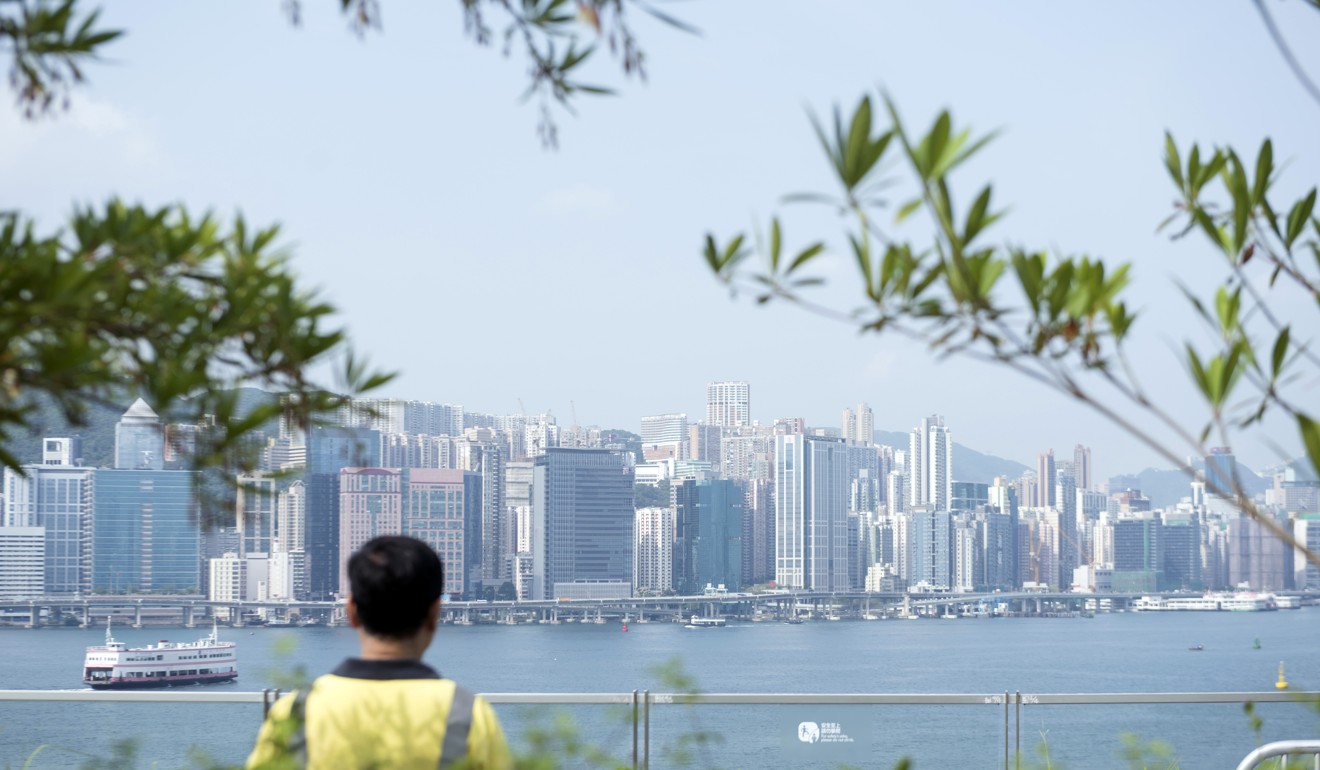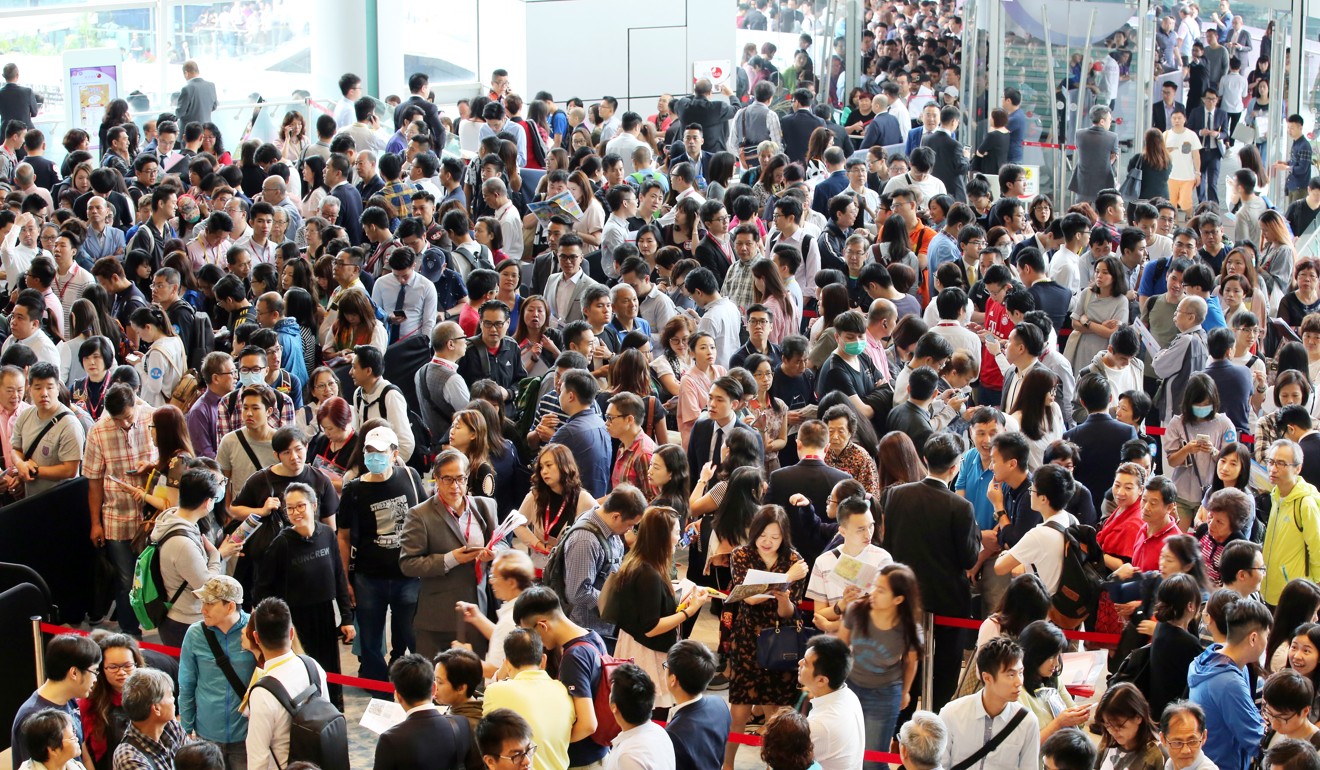
Actually, Deutsche Bank was right, it’s time to bail on Hong Kong’s housing market
‘The smart money should be looking at deleveraging now while prices are high and rising, rather than when prices are low and falling’
We know the property market is not in trouble because a widely reported Deutsche Bank report published last week said that the property market could fall by 50 per cent.
It generated incredulity and derision and was not taken seriously. But were the naysayers too quick to pooh-pooh?
Property analyst Jason Ching made a number of good points. As our population ages, households will find that their mortgage life is getting shorter – well below the 30 years available to younger people. That will further hit housing affordability, already sensitive to interest rate rises. By 2019, only 11.5 per cent of households will be able to afford private housing, down from the current level of 16.9 per cent.
The headline figure of a fall of 48 per cent is of course not a huge stretch over the next eight or nine years that Deutsche says could happen. We have rarely gone seven or so years without a big crash, like those in 1997, 2003, 2009 – and we are already nine years from the global financial crisis, we are at the limit of our endurance. Hong Kong’s home prices are the highest per square foot – in the world. They are nearly 90 per cent above their 1997 peak and are up 23 per cent over the last 12 months. Besides which, Hong Kong has a habit of recording big losses in property so we can be pretty sure that a crash is likely to come well before 2026.
It might be close to the time when it is better to rent than to own
The Hong Kong property market is full of vested interests looking to keep prices high. They point to the constant increase in population, the desirability of Hong Kong as an investment destination, full employment and stable economy. There is clearly no sign of an economic downturn. This time it is different. Debt levels are higher than ever before because interest rates are far too low.
The change of sentiment is very fast when it comes. It is only when the vested interests are unable to rig the market one last time that the virtuous cycle turns vicious - and this exacerbates the collapse. Of course by the time we recognise that there is a downturn, it is too late. The investment case for investors to own multiple apartments is easy; property is going up so you might as well buy another using the collateral of the last. Money is so cheap that capital is not a problem. Such an investor can always sell two or three flats if he wants to deleverage. The only problem is that he is will be going for the same door, at the same time as everybody else, leading to forced sales at distressed prices.

One reason why we are always so surprised by crashes in Hong Kong is that in recent years the big triggers for collapse are global rather than local. The Asian debt crisis precipitated the 1997 slowdown, Sars affected us in 2003, and in 2007 the trigger was distressed mortgage loans in the US. Hong Kong hurts badly at those times as it often behaves as a warrant on the developed world; rising faster and falling further than other markets. So if our property market halves it is likely to be associated with big falls in London, New York and Tokyo.
US interest rate rises, such as the one this week are currently too small to affect the property market but they are the biggest of the external risks to our local market. Rate rises are generally mirrored in Hong Kong because of our currency’s link to the US dollar. That link, at least at present, gives us lower absolute interest rates than those in China.

Two weekends ago investors ignored record-level prices, and mortgage rates that had been raised the night before by the big banks, to buy units in a Cheung Kong Property development. Even the chief executive of the Hong Kong Monetary Authority, Norman Chan Tak-lam, said the high turnout rate was reminiscent of the property market’s 1997 peak, when queuing, paying too much and an unstoppable momentum captivated the market. Flat hunting was quieter last weekend but still has that end of cycle feel about it.
The 50 per cent fall is coming and the smart money should be looking at deleveraging now while prices are high and rising, rather than when prices are low and falling. It has not often been the right thing to do in Hong Kong, but markets go down as well as up and it might be close to the time when it is better to rent than to own.
Richard Harris is a veteran investment manager, banker, writer and broadcaster – and financial expert witness.

